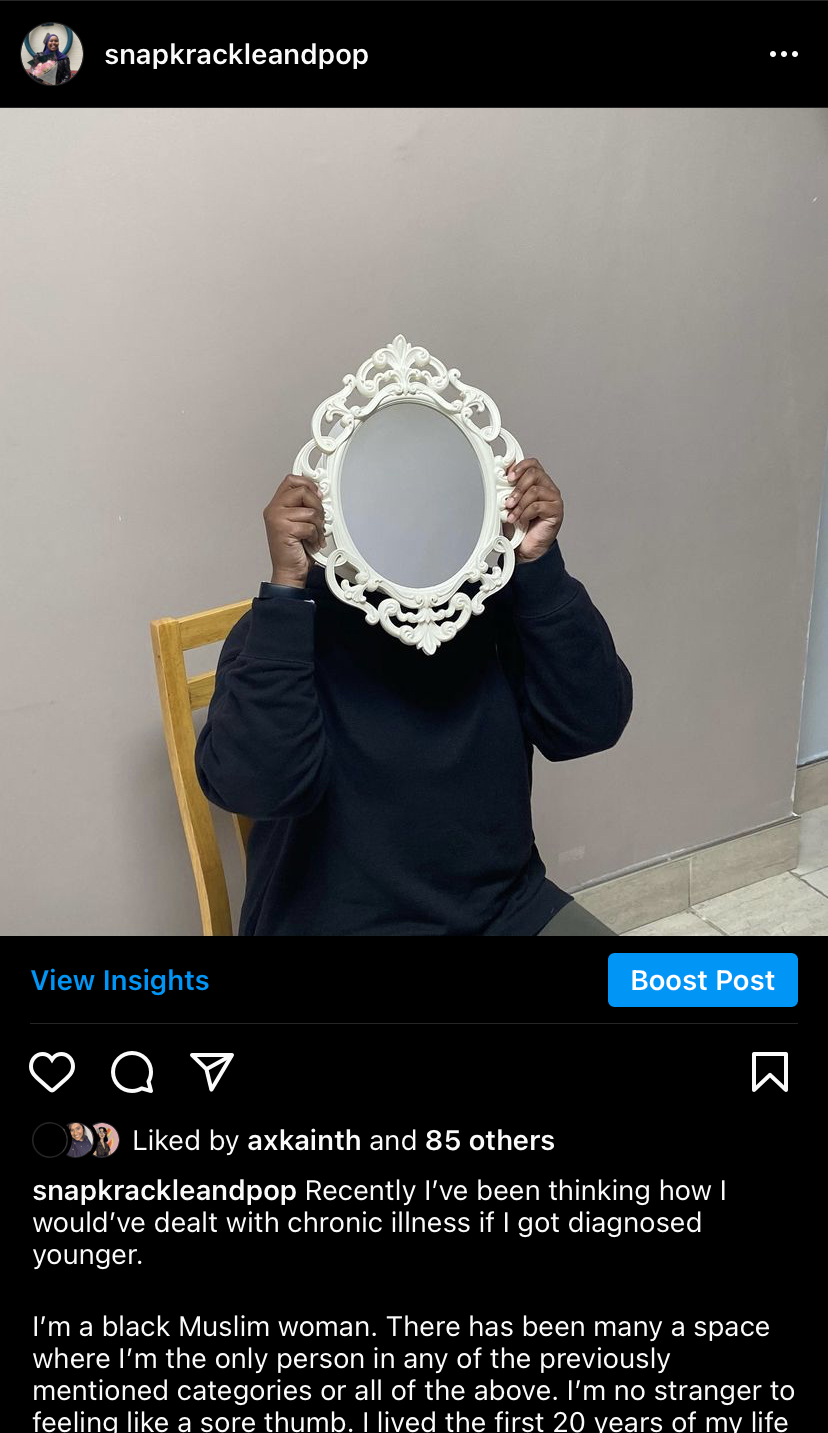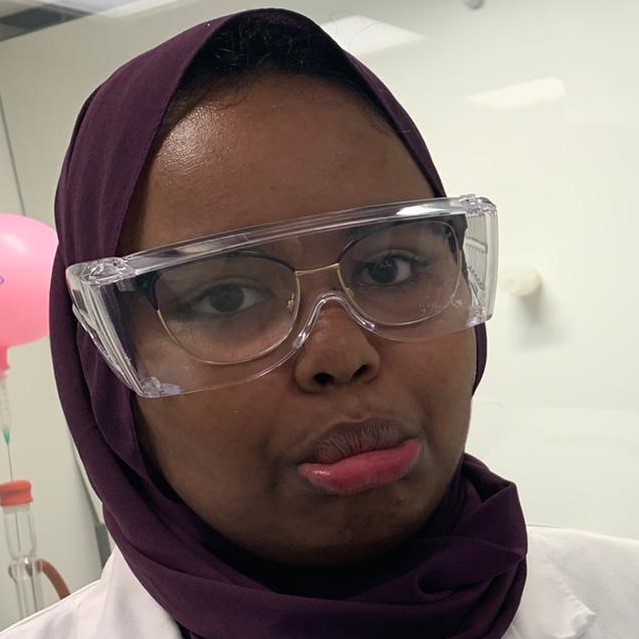Student case study - Breaking the stigma and pushing positive change through the power of social media

Those suffering chronic illness and invisible conditions tend to go unnoticed and are sometimes afraid to seek the help that they need. They have to battle with coming to terms with their diagnosis, everyday obstacles and validating their existence. Queen Mary graduate Safia Awil talks about how she navigates higher education and employment with a chronic illness, using the power of social media to foster a community and break the stigma for seeking help.
Interview with Safia Awil
My name is Safia, and I’m 23 years old. I currently work as an associate consultant at Capgemini Invent. In my spare time, I like to read, try baking new things and going for walks. I studied a degree in Chemistry at Queen Mary and ‘graduated’ in 2020.
What you were diagnosed with and how did you handle it?
I am currently diagnosed with a form of inflammatory arthritis known as axial spondyloarthropathy with peripheral joint involvement. I initially got diagnosed with seronegative rheumatoid arthritis in October 2019 after months of tests and waiting for a referral. A year after this diagnosis, on my arthritis anniversary and a couple of months of minimal disease activity, I started to show symptoms not classically aligned to a rheumatoid arthritis diagnosis (the pain in my spine started in my lower back and started spreading as time went on). After an MRI in April 2021, I was re-diagnosed. The first time, it felt like a prison sentence if I’m honest. I was diagnosed before I’d started my third year of university, and so much was up in the year. Adding in my health and the precarious house of cards that was my life came down. I felt so alone, and for a while I refused to accept it and developed a real ‘out of sight, out of mind’ mentality. I admit it was not that difficult as you can’t see an invisible illness.
How did you approach your supervisor and Disability and Dyslexia Service for support?
After diagnosis, I went to my academic tutor. Whilst she was helpful in pointing me to DDS, she was unsure of any other support the faculty had in place for someone like me. I went to DDS and they were very supportive. My application for DSA was filled in and sent off for me. Moreover, I felt informed as to what my options were in terms of support.
Tell us about how you have been using Insta?
I started my Instagram page in 2020, its purpose was to share my experiences and bring awareness. What I was not counting on, was the community that I found. It has been empowering finding other people I could relate to. I initially started my Instagram blog as an outlet for the many confusing feelings I had relating to my diagnosis. However, the more I shared, the more I found people who related to what I was saying. My blog allowed me to process my diagnosis and allow myself to feel empowered and empower others too! I hope this is able to help any students that see any part of themselves reflected in this story. It’s okay to ask for help, you’ve not lost if you have.
What is your feedback and suggestions for what the University can do for those with chronic illness?
- Mental health support for students going through this huge change (be it a mental health champion or counselling)
- Specific support - e.g. someone who studies Chemistry to help with Chemistry labs
- Discuss with the student to find the reasonable adjustments that work best for them
- Listen to the student!
Reflect on one of your first ever posts with that photo with you in the lab with the balloon and compare to your most recent ones
I’ll admit I have struggled with the concept of toxic positivity initially. My first couple posts always had a positive ending or a lesson learnt. It took a long time to unlearn that the grass is not always the grass greener. I thought if I critically assessed the pros and cons of becoming disabled, it would not affect me as much (how wrong I was haha). I look at my posts and I am proud. Proud that I did not hold back and shared honestly. I often reread them to remind myself that I have gone through it once and can do it yet again.
How did the pandemic affect your studies?
I’m one of the lucky graduates who finished their degrees right in the peak of the pandemic. I say I am lucky as it was the last three months of my degree that were affected. Unfortunately, the lab I was conducting my research project shutdown (as well as the rest of the country), so I did get creative when it came to analysing my data and writing up my report. The end of my degree felt a little anticlimactic, three years ended with the push of the button. I finally managed to have my graduation ceremony in January 2022, and it feels like now that chapter of my life has ended.
How do you navigate uni vs. the workplace?
I’ve now been working for about one and a half years, all whilst having my chronic illness. I’ve mostly come to terms with it and am accepting of it most times. There are times where I do grieve my past healthy self and the ‘what if I had not gotten sick?’ but that is to be expected. With working, what works for me is the routine. I work 9-5:30 and so try to set buffers and schedule my day to avoid as much pain and fatigue as possible (taking regular breaks, staying active and lots of rest!). During university, I also believed in a routine as well as working sustainably. What this meant was establishing working hours, where I’d work at the library or a cafe and then come home and rest. This helped me greatly as I saw home as a place to recuperate and relax.
And how you are right now during this time of Ramadan?
Right now, it is the month of Ramadan and I am fasting. My workplace has been accommodating and have allowed me to shift my working hours to suit me best. I’ll be honest and say it did take me a while to get used to especially with fasting fatigue. I have not had any major flares which I am grateful for and am excited for Eid and caffeine :)
Safia Awil was in conversation with Salve Salvana
Ask for help when you need it… so many people are struggling in silence— Safia Awil

Find out more
Charities working with both RA and axSpa
